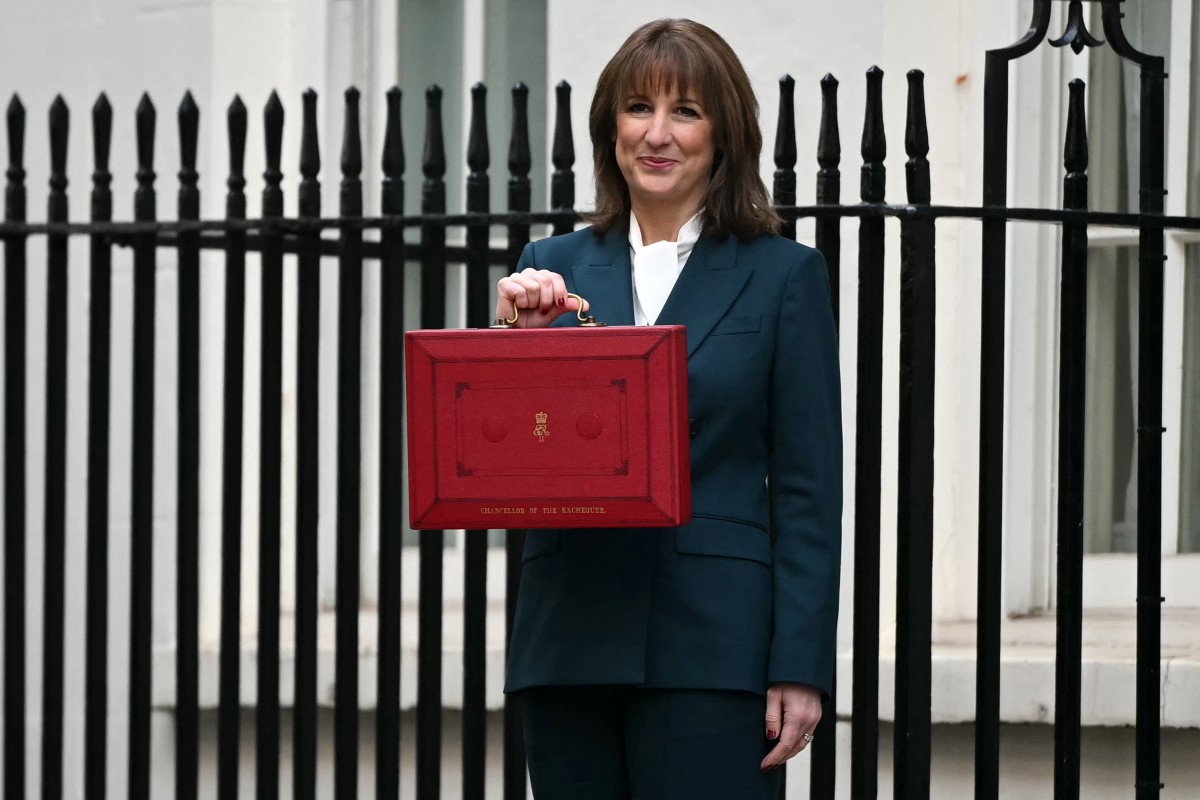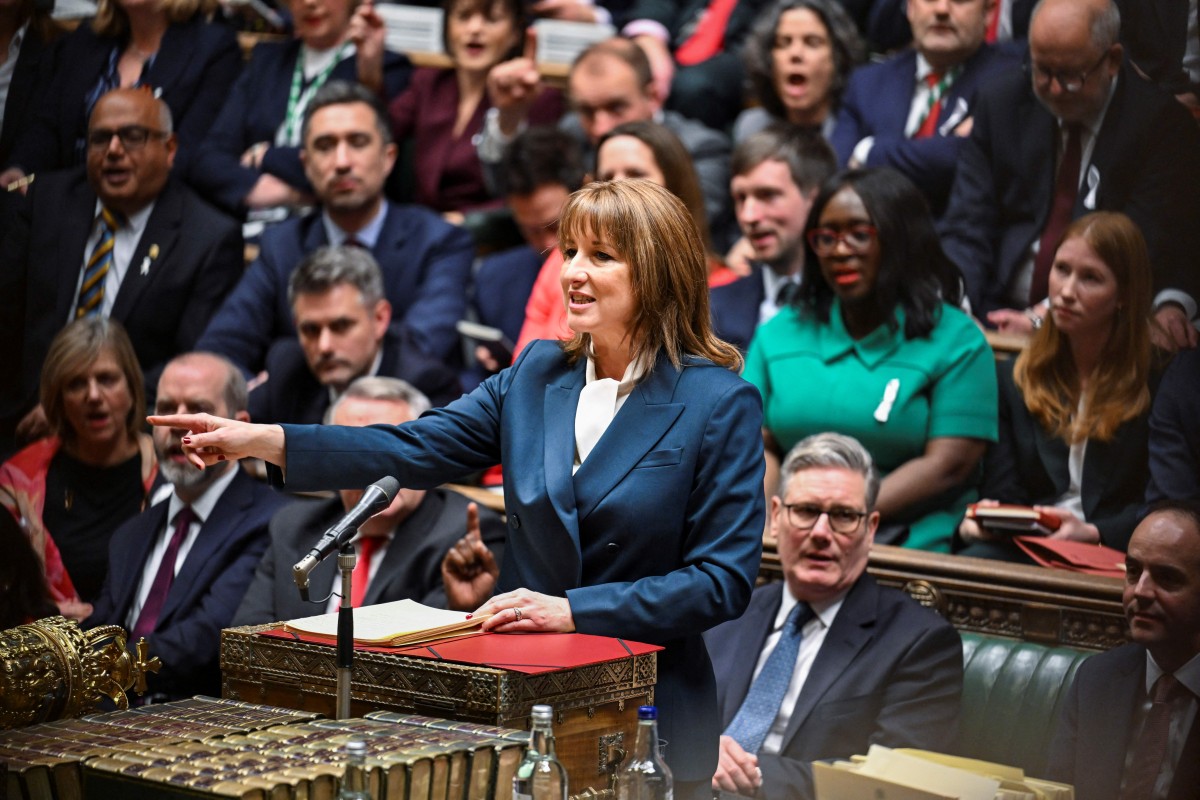
LONDON - British finance minister Rachel Reeves announced a big tax-raising budget on Wednesday that will take more money from workers, people saving for a pension and investors to give herself greater room to meet her deficit-reduction targets.
Britain's fiscal watchdog cut its forecasts for economic growth for the coming years - a setback for struggling Prime Minister Keir Starmer who promised voters last year he would speed up the economy.
But the Office for Budget Responsibility (OBR) said the government will now have more than double its previous buffer for meeting its fiscal targets, something closely watched by investors assessing Britain's borrowing risks.
The OBR - in forecasts published in error before Reeves began her annual tax and spending speech to parliament, and first reported by Reuters - said the tax hikes would amount to an annual 26.1 billion pounds ($34.5 billion).
That will push Britain's tax-to-GDP ratio to 38.3 percent of economic output, a fresh post-war high, although this will still be lower than the euro zone's average of 41 percent last year.
ALSO READ: UK's fiscal watchdog to downgrade growth forecasts, Sky News says
Last year, Reeves ordered 40 billion pounds of tax hikes - the biggest since the 1990s - and she promised at the time that they would be a one-off.
"No doubt, we will face opposition again. But I have yet to see a credible, or a fairer alternative plan for working people," Reeves said.

Growth forecasts cut
The removal of a two-child limit on welfare payments to poor families is opposed by most Britons, according to opinion polls but the announcement earned cheers from Labour Party lawmakers.
Although the next national election is not due until 2029, the authority of Reeves and Starmer has been questioned within their centre-left party.
The Institute for Fiscal Studies think tank highlighted how the budget included an increase in spending in the short term while much of the push to raise taxes would hit later on.
"The future restraint, just before the next election? One could be forgiven for treating that with a healthy dose of scepticism," IFS director Helen Miller said.
The OBR cut its forecasts for economic growth which it now saw averaging 1.5 percent over the five-year forecast period, 0.3 percentage points slower than it expected in March.
The downgrade was linked to lower productivity growth which the OBR said reflected past underperformance due to headwinds including Brexit.
READ MORE: Brexit hit to UK economy double official estimate, study finds
Reeves vowed to prove the watchdog wrong. "We beat the forecasts this year and we will beat them again," she said.
But the OBR's verdict on the budget and the outlook saw British living standards barely growing in the coming years, hurt in part by the higher taxes.
Borrowing costs fall
British 30-year government bond yields - which are sensitive to borrowing concerns - fell sharply by almost 12 basis points on the day, their biggest one-day drop since April, suggesting investors were largely comfortable with the budget plan.
Sterling rose against the US dollar and the euro.
The OBR said the headroom - the amount of extra spending or tax cuts possible for the government while meeting its budget rules - stood at almost 21.7 billion pounds in four years' time.
In March, the OBR forecast headroom of just 9.9 billion pounds which was eaten up by the weaker economic outlook, higher-than-expected borrowing costs and a U-turn in July on welfare reform.
Deloitte Chief Economist Ian Stewart said the OBR's assumption of faster wage growth - and higher tax receipts - had rescued Reeves.
"However, today's announcements will likely have a longer-term impact on growth, as the chancellor is raising an extra 26 billion pounds a year in tax," Stewart said.
The OBR said a three-year extension of a freeze on income tax thresholds - first introduced by the previous Conservative government - would raise an extra 8.0 billion pounds in the 2029/30 financial year.
READ MORE: UK's Starmer, Reeves ditch budget plan to increase income tax rates, FT reports
The generosity of pension incentives was scaled back with social security charges on salary-sacrifice pension contributions raising almost 5 billion pounds.
Increasing tax rates on dividends, property and savings income would raise 2.1 billion pounds, the OBR said, while a so-called "mansion tax" on homes worth more than 2 million pounds was expected to raise 0.4 billion in 2029/30.
Reeves maintained a freeze on the rate of fuel duty but she introduced a new mileage-based charge on electric cars.
Despite the increases, David Zahn, head of European fixed income at Franklin Templeton, which manages $1.5 trillion in assets, said he expected Reeves would have to raise taxes again next year.
"It's a missed opportunity, and she's just chosen to kick the can down the road," he said
Spending up, growth down
Public spending was due to grow every year as a result of the measures in the budget - reaching an extra 11 billion pounds in 2029/30 - primarily to pay for the welfare measures.
A think tank that focuses on poverty reduction welcomed the removal of the two-child cap, along with actions to lower energy bills and an increase in the minimum wage announced on Tuesday.
"But there is more to do," Alfie Stirling, insight and policy director at the Joseph Rowntree Foundation said. "Housing costs and bills are still too high, our safety nets are too frail, and the cost to workers of caring for their loved ones is too great."


